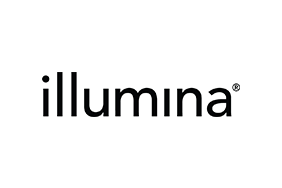Published 18 hours ago
Proposed by Illuminated
Originally posted on Illumina News Center
The Australian Center for Population Genomics (CPG), a collaboration between the Garvan Institute of Medical Research and the Murdoch Children’s Research Institute, has launched a new initiative to engage diverse communities in genomics research. Supported by a 10 million Australian dollar (US$6.26 million) grant from the Australian government, as well as contributions from Illumina and other organizations, the Australian Genetic Diversity Database Project, called OurDNA, will collect data to improve the prediction, diagnosis and treatment of diseases. in underserved communities.
Reference databases are essential for advancing genomic medicine, providing in-depth information for understanding genetic variations and their associations with disease. Unfortunately, the true genomics of populations have been elusive.
“Existing global databases are heavily skewed towards people of European ancestry,” says Professor Daniel MacArthur, who leads the CPG and leads the OurDNA initiative. “This means Australians who are not of European descent may have difficulty being diagnosed with a genetic condition and may not benefit from continuing advances in genomic medicine.”
The OurDNA initiative will help address this deficit by engaging people from culturally and linguistically diverse communities, including Australians of African, South Asian, Middle Eastern, East African, Pacific Islander, Aboriginal and Strait Islander descent. of Torres.
The OurDNA team prioritizes these groups based on their size, lack of representation in existing databases, and clinical need. Researchers will also work closely with the CONNECT Consortium, a national, Indigenous-led effort that aims to empower Aboriginal and Torres Strait Islander people in genomics medicine and research.
Overcoming long-standing barriers
Minority communities in Australia have been underrepresented in genomic research for several reasons. In some cases, study organizations may have responded to the needs of majority populations because they are easier to contact through conventional communication channels.
Researchers also failed to develop culturally and language-appropriate information and educational resources around genomics for many diverse communities in Australia. Therefore, it can be difficult for researchers to communicate the goals and benefits of a project.
“One of the main goals of this initiative is to consult extensively with communities before recruitment,” says MacArthur. “We want to make sure that we fully understand the needs of each community and meet them as much as possible in our program design. »
To increase participation, the project adopts participatory approaches that have successfully diversified medical research in other countries. For example, the team will work closely with stakeholders in each community to better understand their perspectives and expectations, and collaborate with them to design communications. After the co-design process, the program will reach potential participants through a series of community events and other channels. People who consent to participate in the project will contribute to the development of genomic resources that are more representative of Australian diversity, including a genetic variation reference database designed to improve the diagnosis of patients with rare genetic diseases.
Global partners come together
The CPG works with academic and industry partners, including the Federation of Ethnic Community Councils of Australia, Australian Red Cross Lifeblood and Australian Genomics, to engage diverse communities across the country using proven approaches.
Google Cloud and Microsoft support secure data storage, and the Broad Institute at MIT and Harvard works with CPG to make data available to maximize its impact for patients around the world. Illumina will support the generation of whole genome sequencing data, which is essential for the project’s impact on disease diagnosis rates.
“Illumina provides discounted reagents and flow cells for the whole genome sequencing that is so critical to this project,” says MacArthur. “Ultimately, we hope to sequence at least 7,000 genomes to get a broader picture of genomic diversity in Australia.”
To learn more about Illumina’s commitment to expanding access, click here

Illuminated
Illuminated
Illumina improves human health by unlocking the power of the genome. Our focus on innovation has enabled us to become the world leader in DNA sequencing and chip-based technologies, serving customers in the research, clinical and application markets. Our products are used for applications in life sciences, oncology, reproductive health, agriculture and other emerging segments.
More Illuminated

